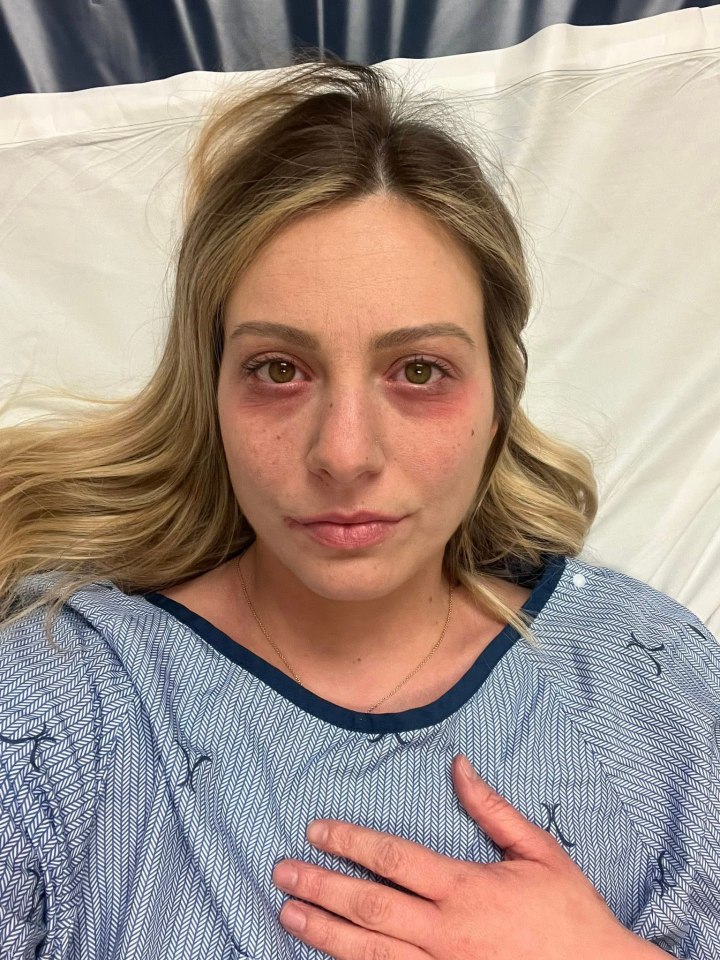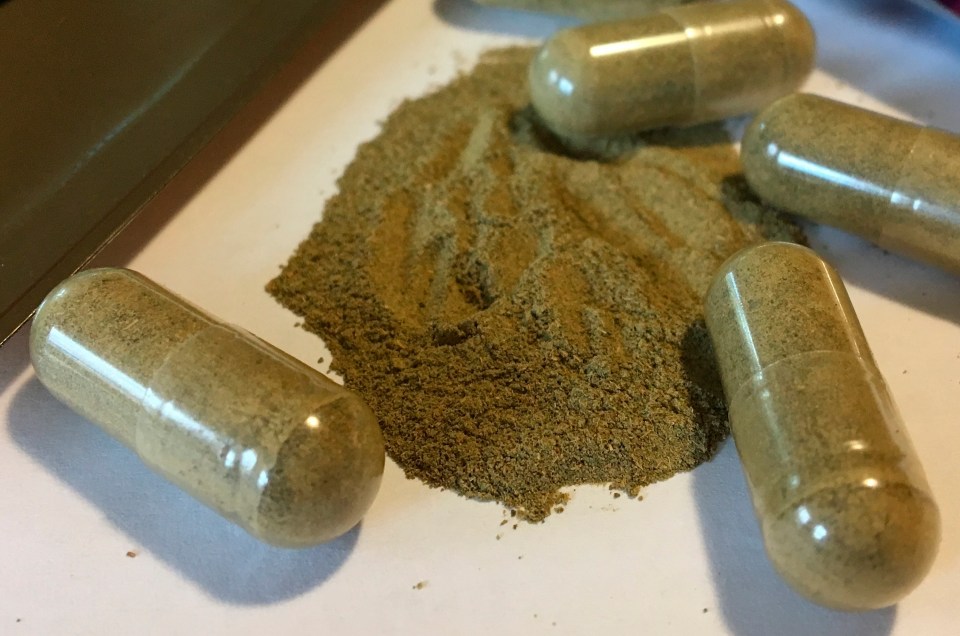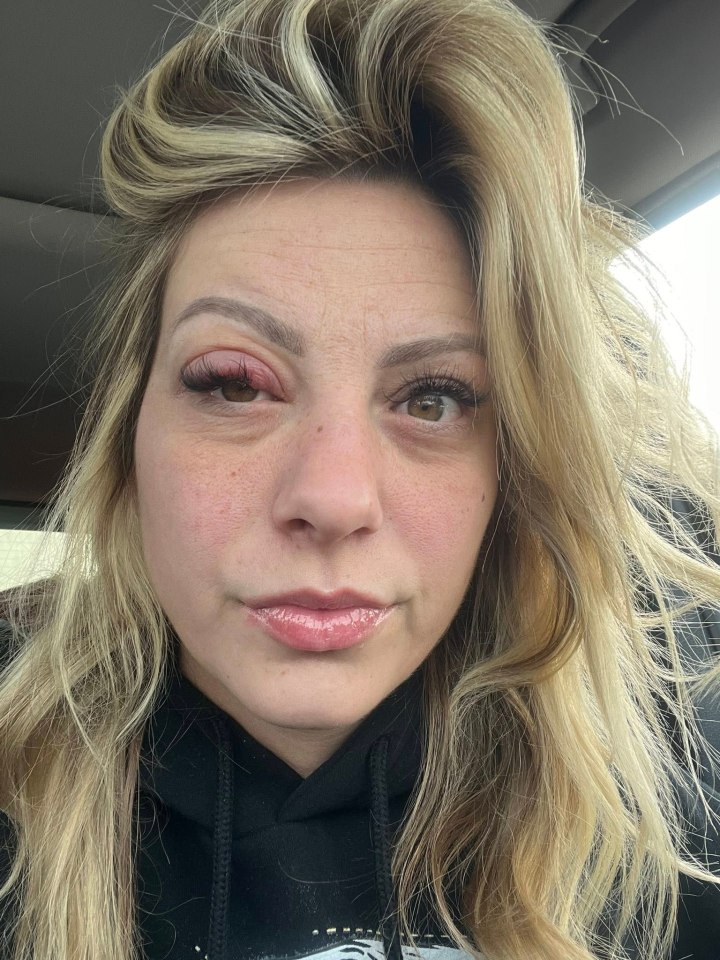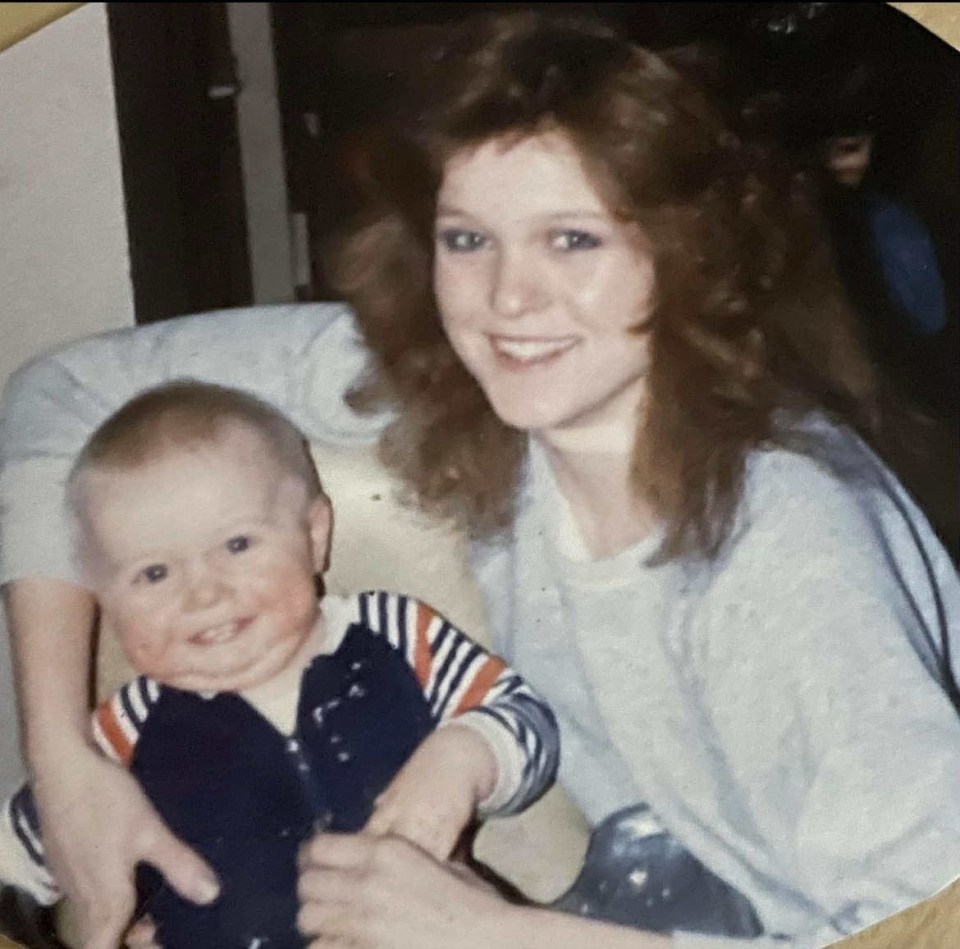CHARMING, bright and charismatic, Matthew Eller lit up “any room he entered” before his shocking death at the age of just 22.
By then, mum Susan Eppard had already noticed the empty $20 packets that littered his room, but was unaware of the dangers of a sinister substance dubbed ‘gas station heroin‘, which is tearing families like hers apart.
Matthew had become hooked on kratom, which has been blamed for a string of deaths in the US, where it is legally sold as powders, pills, £6 drinks, and fashionable ‘energy shots’.
Kratom – which a Sun investigation can reveal is being flogged illicitly in Britain too – carries a high risk of addiction and withdrawal symptoms due to its opioid-like effects, experts say.
Traditionally grown in South-East Asia and considered a member of the coffee family, it is frequently used to self-treat pain, anxiety, depression, and opioid misuse or withdrawal.
It can induce euphoria, as well as sedative effects, depending on the dose and the user.
In the UK and in six US states, kratom is banned. Elsewhere in America – where it is legal yet not federally regulated – the substance has been sinisterly dubbed ‘gas station heroin’ due to its proliferation on the shelves of grab-and-go shops.
“I had no idea he was using kratom, nor did I know what it was,” Susan, 59, tells The Sun of her boy, material handler Matthew, who died in November 2021.
“When he moved out of my house in 2020, I found empty kratom packets with price stickers of over $20 on them, which explained why he was always broke despite having a good job.
“He said he used kratom for energy, and said it’s like coffee. I looked it up online, but at that time, it was almost all positive information. Matthew nor I had any idea it could kill him.
“My son’s toxicology reports show he died from kratom alone – no other substances nor underlying health conditions.”
Susan is not alone in her grief. A number of American mothers are losing their children in tragedies linked to the controversial, opioid-like supplement.
Consumers, including a 16-year-old schoolboy, have been found dead after taking kratom – which advocates have hailed as a “green miracle” for the management of certain conditions.
“My daughter started kratom for anxiety,” says one devastated mum, who wishes to remain anonymous.
“She ended up addicted, her personality changed, and within a year she was gone.
“We never knew something you could buy at a gas station could kill.”
UK’s kratom black market
While the sale of kratom is banned in Britain under the Psychoactive Substances Act 2016, our investigation found that Brits are gushing over, and even flogging, the herb on social media.
In one private, yet easy-to-access, UK-based group on a popular platform, we discovered a user boasting about “fresh groceries” and “updated menus” – both in reference to kratom.
“Hi everyone, fresh grocery top up in pantry, with something a little special,” one post read – while others discussed ways to order the supplement without being caught by police.
“A few months ago, I ordered kratom and it got seized in customs,” wrote another user, supposedly based in London, who claimed that kratom “helps my mental health”.
“Had a visit from the police, they put me on bail, it was a very stressful time for me,” the user continued. “Now I’m scared to order it again… is there anyone that can help me out?”
On another global platform, influencers are filming themselves preparing kratom tea.
While searching for the word “kratom” brings up nothing – only a warning about potentially dangerous substances – it is easy for users, including children, to get around this barrier.
Professor Ian Hamilton, a top narcotics expert and an associate professor in addiction at the University of York, admits that kratom “could be more widely used than we realise” in Britain.
No parent should have to stand at their child’s grave because of an unregulated product
Grieving parent
“There’s still a lot we don’t know about it,” he tells The Sun.
“It is kind of a double blind spot: not knowing how widespread the use is in the UK, and, from a scientific point of view, [not] knowing much about things like its effects with other drugs.”
In 2020, a father and son were charged after hauls of kratom – with an estimated black market value of £60,000 – were seized by Border Force at two British airports.
A haul of 52kg was uncovered at Edinburgh Airport, while 102kg of the stuff was seized at East Midlands Airport, in a joint National Crime Agency (NCA) and Police Scotland probe.
At the time, NCA Scotland operations manager, John McGowan, described kratom as a “dangerous drug”, and said officials were working to keep the substance off the streets.
“[Kratom] is very difficult to detect on drug tests,” adds Prof Hamilton.
“So that could make it appealing to, for instance, HGV drivers, pilots… anybody that knows that they’re going to have workplace random drug testing.”
‘My year of hell’
Mum-of-three Raylee Reinhart knows first-hand the damage kratom can cause, after her first taste kicked off a terrifying, body-wrecking addiction.
The socially-anxious 30-year-old thought the herbal supplement was a safe alternative to booze, and sat down to try it at a trendy bar, promised an ‘all natural’ bubbly feeling of calmness.
Soon, however, she was forking out more than £2,000 per month on up to 10 shots a day.
Raylee felt like she was “dying” as her hands turned numb, her hair fell out, and she dropped a shocking two stone.
“My boyfriend would say, ‘Every time you get out of the shower, there’s a huge clump of hair in the drain,’” she tells The Sun. “And it got worse. I lost more than half of my hair.”
The casino worker, from Montana, also experienced “completely dry” skin, mysterious rashes, and styes on her eyelid – while her mental health spiralled into suicidal feelings.
“It was a year’s journey of straight hell,” she adds.
“I knew I was addicted. One night, I didn’t have a shot for the full day and I couldn’t sleep.
“My legs were just uncomfortable and hurt.”
Raylee, who had just finished treatment for alcohol abuse when she first tried kratom a couple of years ago, recalls her skin began to look like that of an “old woman’s” – which other reports have described as “alligator skin”.
“At one point, I had numb, tingly hands,” she continues.
“My skin had these weird rashes all over it. I had super dry, flaky skin… it was gross.
“I [also] lost probably 30 pounds.”
Grieving families
In America, grieving families say there is no doubt the use of kratom is soaring. In states like Montana, the herb is sold at petrol stations, kava bars, nutrition shops and vape stores.
One Reddit user says of kratom drinks: “I can cross the street in 15 seconds and buy one”.
And Raylee, who managed to quit kratom more than six months ago, agrees: “It’s blown up.”
She adds: “Before, it was just one specific gas station that sold them.
“Now, it’s every single gas station, pretty much everywhere you go.”
In 2021, a whopping 1.7million Americans, aged 12 and older, used kratom, according to a survey by the United States’s Substance Abuse and Mental Health Services Administration.
And while the country’s Food and Drug Administration (FDA) has not approved the herb for sale, its availability in ordinary-looking shops has led customers to believe it’s safe.
“He read it was all natural and not as addictive as coffee,” mum Kelli McCann says of her son, Benjamin Wilcock, a long-term kratom user who died in September 2024.
“They found kratom in his apartment after he died.
“There’s so much we don’t know about the substance, it’s very scary.
“Benjamin believed it was as safe as coffee.”
It was later ruled that Benjamin had died from “acute mitragynine intoxication”.
Mitragynine – sometimes taken with other substances – is one of the two main psychoactive ingredients found in kratom leaves (the other being 7-Hydroxymitragynine, or 7-OH). At high doses, it can reportedly cause seizures, psychosis, liver damage, and difficulty breathing.
It can also cause damage to unborn babies, health officials say.
‘I hope there was no pain’
Benjamin, a hard-working operations manager for a beverage company, had turned to kratom after researching “natural methods” to treat the pain caused by his psoriatic arthritis.
At the time of his death, aged 40, he’d been using the herb for more than seven years.
A much-loved and “very intelligent” son who adored the band Queen, he was found lifeless on his couch, with his computer on his lap, after he failed to show up to work.
“He was gone,” recalls Kelli, a speech therapist living in a rural US community. “He had kratom in tea – his cup was in the sink.”
She adds, sadly: “I hope there was no pain and no fear.”
What is ‘gas station heroin’ kratom?
KRATOM is a tropical tree that is native to South-East Asia. Its leaves contain two main psychoactive ingredients: Mitragynine and 7-Hydroxymytragynine, or 7-OH.
Consumption of its leaves can produce stimulant effects – in low doses – and sedative effects in high doses, according to the United States’s Drug Enforcement Administration (DEA).
It can cause psychotic symptoms, and psychological and physiological dependence.
High doses might also lead to seizures, liver damage, difficulty breathing, and death.
The DEA says: “Kratom has a long history of use in South-East Asia, where it is commonly known as thang, kakuam, thom, ketum, and biak.
“In the US, the abuse of kratom has increased markedly in recent years.”
The agency adds: “Kratom’s effects on the body include nausea, itching, sweating, dry mouth, constipation, increased urination, tachycardia, vomiting, drowsiness, and loss of appetite.
“Users of kratom have also experienced anorexia, weight loss, insomnia, hepatotoxicity, seizure, and hallucinations.”
The Food and Drug Administration (FDA) has not approved the herb for sale in the US. However, it is legal in some states.
It is banned in the UK, and many other countries.
In many kratom-related deaths and incidents, the supplement has been taken with other substances.
In January 2024, a schizophrenic who had consumed large quantities of kratom, and smoked cannabis, cut off both of his ears and his penis in a horrific self-inflicted attack.
Other tragedies to have been linked include the deaths of a dad who began seizing six feet away from his daughters, and a son who suddenly collapsed while fishing.
In another, particularly distressing, case years earlier, Florida nurse and mum-of-four Krystal Talavera, 39, was found face-down in her family’s kitchen, with her baby son beside her.
She was raced to hospital, where she was tragically pronounced dead.
Krystal, whose cause of death in 2021 was, like Benjamin’s, ruled to be “acute mitragynine intoxication”, had viewed kratom as a safe, natural supplement, according to reports.
Her family was later awarded more than $11million in damages from the kratom distributor.
But despite multiple lawsuits filed against distributors and manufacturers of kratom in the US, Wendy Chamberlain – who founded the group, Kratom Danger Awareness (KDA), after the death of her son, Joseph S. Lumbrazo – claims kratom is a “growing public health crisis”.
“He wasn’t using kratom to get high – he was using it the way it’s marketed: for focus and energy,” Wendy says of Joseph, who was 38 when he died in 2020.
She adds: “Since his death, I’ve connected with hundreds of grieving families whose loved ones were also lost to this unregulated substance.”
One of these family members – a supporter of Wendy’s group – says: “My son thought kratom was harmless because it was sold at a store.
Kratom is not safe. We have seen young, otherwise healthy people spiral into opioid-like cravings and withdrawals – ‘dope sickness’
Former cop Brian Townsend
“We buried him at 25 years old.
“No parent should have to stand at their child’s grave because of an unregulated product.”
Another member says: “Kratom stole my husband and left our children without a father.
“The labels never warned us it could be lethal.”
‘Baseless promises’
Brian Townsend, a retired supervisory special agent with the US Drug Enforcement Administration (DEA), tells us that the labels on kratom products can be “misleading”.
“Kratom is sold as powders, capsules, and trendy ‘energy shots’ at gas stations, smoke shops, and online,” he says. “Labels are often vague and misleading, and there is little quality control. This raises the risk of inconsistent dosing and contamination.”
Brian, also a former cop, adds: “I’ve even seen rural gas stations with hand-written signs claiming kratom cures anxiety, boosts energy, and helps with pain.
“These are all baseless promises that give a false sense of safety.
“Kratom is not safe. We have seen young, otherwise healthy people spiral into opioid-like cravings and withdrawals – ‘dope sickness’. There is nothing good about kratom.”
Online, the dangers of buying kratom are arguably even greater.
“People will be unsure of the quality, the potency, and what else is in it,” says Prof Hamilton. “By itself, it’s a very bitter-tasting drug. It will be mixed with something to make it palatable.”
During our investigation, we came across social media posts revealing websites where Brits can purchase kratom in different, trendy-sounding strains, each offering unique effects.
“I order mine from the website you mentioned and *touch wood* never had a problem with delivery,” one woman told another user. “They are also one of the cheaper vendors.”
One UK-supplying website boasts of sourcing “the best kratom” from South-East Asia.
The site describes how the herb is supplied “directly” to customers, adding that its “successful and respected business” involves online outlets in the UK and the US.
Another site advertises “fast delivery to United Kingdom”.
$1.5bn industry
Doctor Giuseppe Aragona, a GP who has previously worked in Britain, tells us there have been some UK-based cases of “kratom-related health incidents”, including deaths.
“Patients arriving at hospitals with kratom toxicity typically present with acute symptoms such as severe nausea, persistent vomiting, and a rapid heart rate,” he says.
In the US, Dr Aragona, Chief Medical Advisor at Prescription Doctor, adds: “Emergency departments are reporting a rise in such cases as kratom use becomes common.”
According to Florida’s Tampa Bay Times, the kratom trade is worth an estimated $1.5billion (£1.1billion), with at least 2,000 fatal kratom-related overdoses recorded in the US since 2021.
This July, the FDA said it was taking a “bold step to protect Americans from dangerous, illegal opioids” by recommending scheduling action to control certain 7-OH products.
Yet Wendy says her group, KDA, is fighting for a “total federal ban” of kratom products in the country, adding: “Every day it remains on shelves, more families are left devastated.”
And heartbreakingly, this devastation lasts a lifetime.
“Since Matthew’s death, his siblings and I have been in therapy to survive the emptiness his death has caused,” Susan tells us.
“The worst times are Matthew’s birthday [and] the day of his death. And all holidays are a dreadful reminder that the baby of our family is never coming back.”
And Benjamin’s mum Kelli admits: “A part of me has gone.
“It’s like a very severe homesickness that you know you can’t fix.”
























